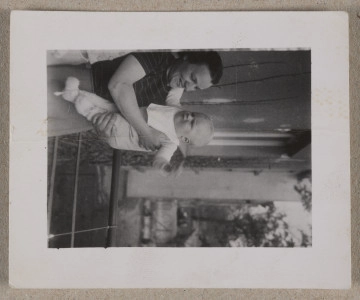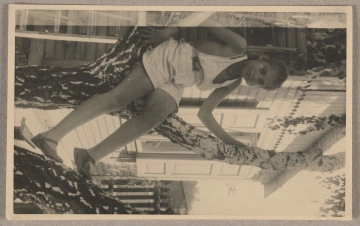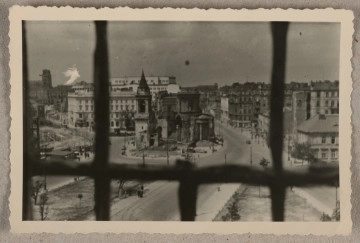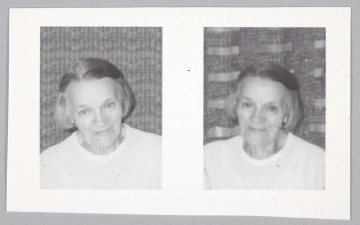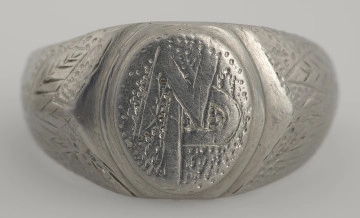
Ring
1939 — 1945
Museum of the history of Polish Jews
Photographs and documents related to the history of hiding Krystyna Sigalin, the daughter of Roman and Hanna Sigalin née Haftke.
The Sigalins were a very wealthy Warsaw family. Roman Sigalin had an architectural studio together with Jerzy Gelbard (Roman's brother Grzegorz Sigalin was also in the partnership, however he left for the USSR, where he was arrested and executed). Krystyna Sigalin, born in 1931, was looked after by Feliksa Szulc, who later played a huge role in saving the girl.
After the 1939 defensive campaign, Roman Sigalin did not return from the war - it was only years later that the women learnt that he had been killed in Katyn. Hanna Sigalin escaped with her daughter and Felicja Szulc to Lviv, where she stayed initially probably with her family. Eventually, probably after Lviv had been occupied by the Germans, she returned with Krystyna to Warsaw; Feliksa Szulc remained in Lviv. Sigalinowa and her daughter found themselves in the Warsaw ghetto, from which they escaped when the great liquidation action began. They stayed separately on the so-called Aryan side (Hanna Sigalin decided that she had "bad looks", as they said, and was endangering her daughter). When Krystyna Sigalin's other places of stay became "burnt", Hanna Sigalin asked Feliksa Szulc to come from Lviv and rescue the girl. Szulc came and took care of the child, introducing her as her own daughter (illegitimate), also during her deportation to work in Germany after the Warsaw Uprising.
In the spring of 1945. Feliksa Szulc and her protégée returned (wandering for several weeks from Brandenburg) to the ruined Warsaw. They found Hanna Sigalin. The Sigalines' flat at Mokotowska Street had not been demolished, but it had already been occupied by other tenants who gave some items to Hanna Sigalin. The women moved to the area around Plac Trzech Krzyży (the collection contains a photograph of the view from the window).
Later (from 1956), when Krystyna Sigalin married Chajkiel Pajes, they lived at different times in a tenement house near Aleja Róż in a house that survived the war and was built according to a design by Jerzy Gelbard and Roman Sigalin. (It was the home of Aleksander Dyszka/Wolski; Pajes guarded his flat while the owner was abroad. They also spent their last days there before their departure for Sweden).
Przemysław Kaniecki
Znaleziono 6 obiektów

Bułhak, Jan
1922 — 1939
National Museum in Lublin
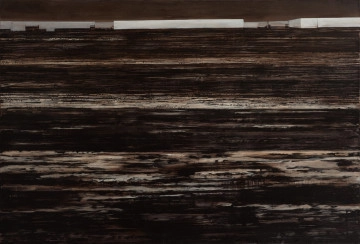
Roman Lipski
2009
National Museum in Szczecin
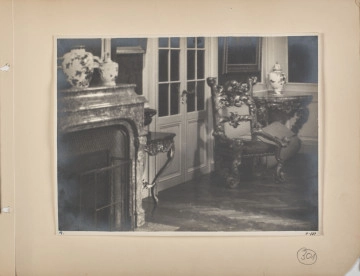
unknown
20th century
Castle Museum in Łańcut
DISCOVER this TOPIC
Museum of King Jan III's Palace at Wilanów
DISCOVER this PATH
Educational path
0/500

We use cookies to make it easier for you to use our website and for statistical purposes. You can manage cookies by changing the settings of your web browser. More information in the Privacy Policy.
We use cookies to make it easier for you to use our website and for statistical purposes. You can manage cookies by changing the settings of your web browser. More information in the Privacy Policy.
Manage cookies:
This type of cookies is necessary for the website to function. You can change your browser settings to block them, but then the website will not work properly.
WYMAGANE
They are used to measure user engagement and generate statistics about the website to better understand how it is used. If you block this type of cookies, we will not be able to collect information about the use of the website and we will not be able to monitor its performance.
